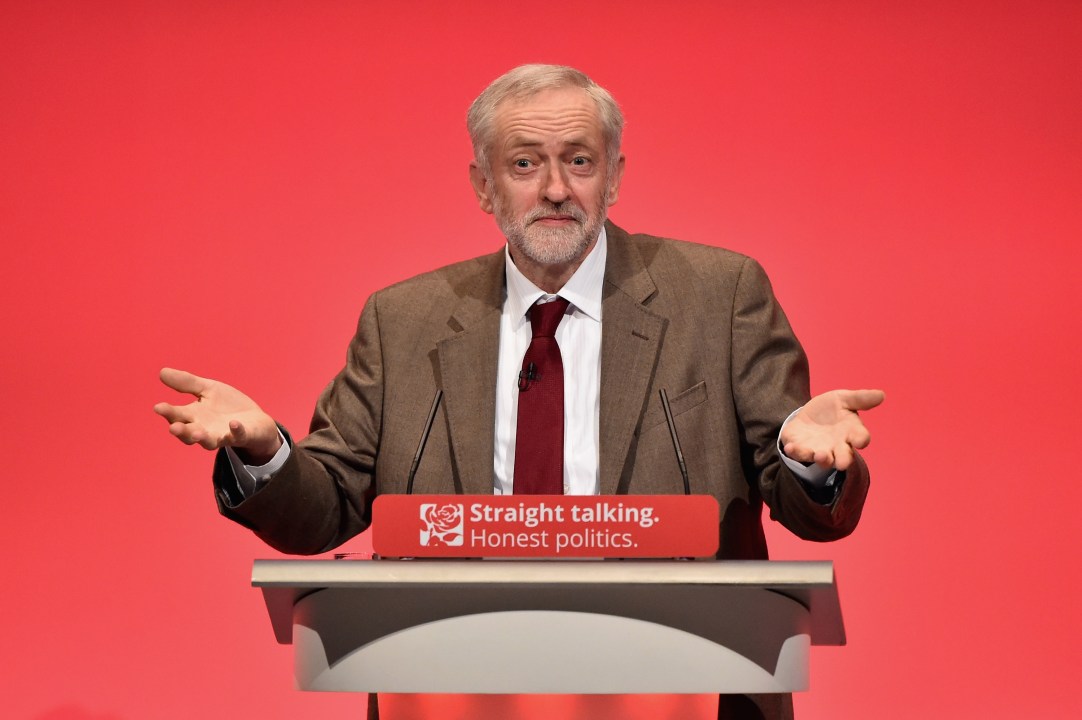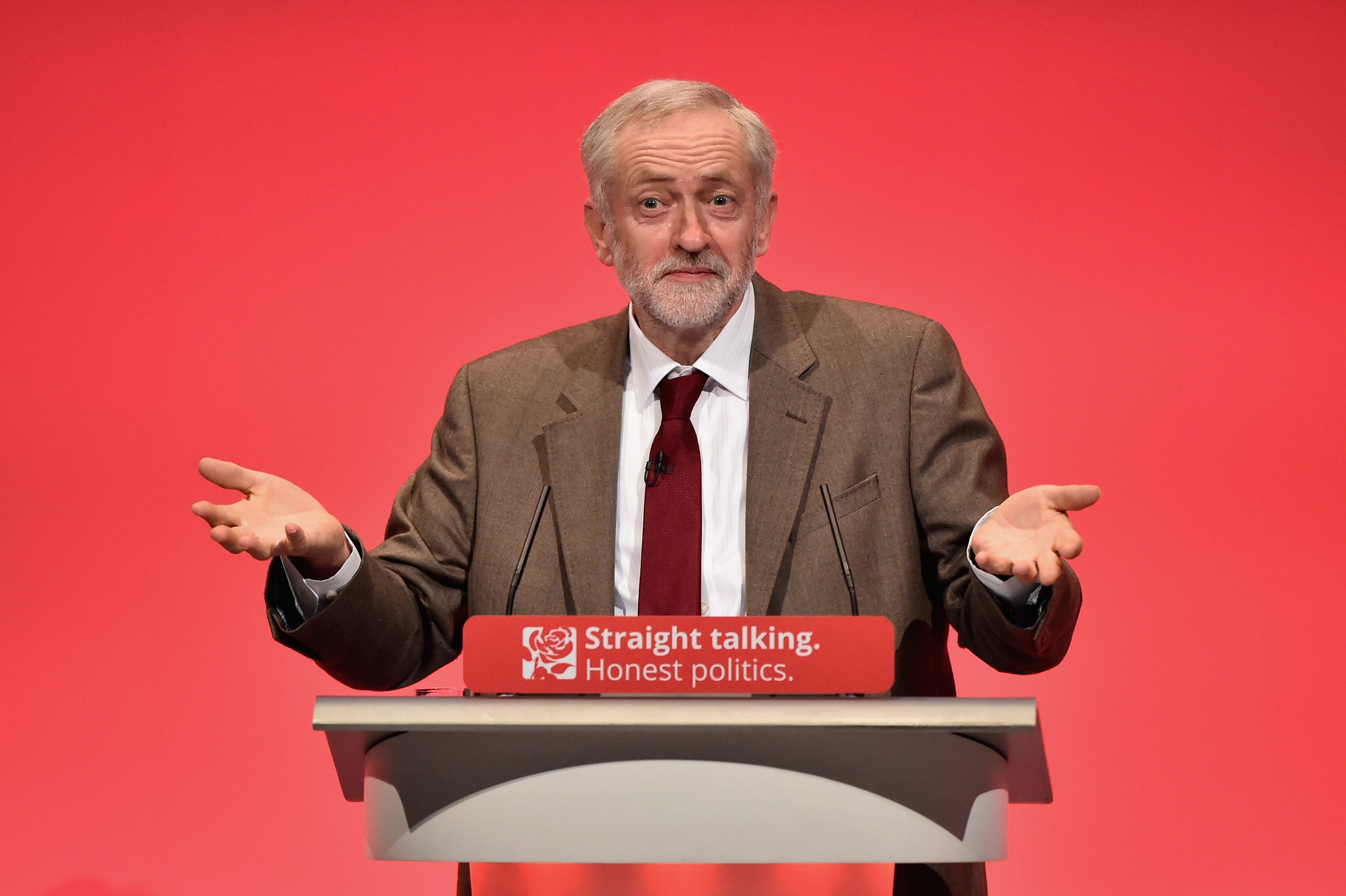I once came up against Mike Gapes in a fraternal game of five-a-side football played at the Elephant and Castle leisure centre in south London in about 1985. Mike is one of the seven Labour MPs to have announced their resignation from the Labour party this week, in order to sit as members of the imaginatively named Independent Group. Back then he was something relatively senior in Labour’s Walworth Road HQ, I can’t recall exactly what. The match was between Walworth Road and the researchers and speech writers, of whom I was one, who worked for Neil Kinnock’s shadow cabinet, in the House of Commons.
We viewed our Walworth Road comrades with enormous distrust, bordering on outright dislike, on account of their leftism, especially Mike. We were largely from the right-wing of the party — the Manifesto Group, as it was called, with a couple from the centre-left Tribune group. Head-office staff were much further to the left. Not actually deranged like some Labour members were — Jeremy Corbyn, for instance and John McDonnell, plus the entryist maniacs from the Militant tendency, led by Dave Nellist. But far enough over for us to debate, on the way to the leisure centre, how hard we should kick Mike Gapes if we got the chance.
Four years before, the party had split, with the formation of the SDP, and we had remained to fight our corner. I, personally, could see the attraction of David Owen — there seemed to be a welcome streak of illiberality in him — but the rest of the Gang of Four, Roy Jenkins, Shirley Williams and Bill Rodgers, seemed to me simply pompous high-born bien-pensants who would have been better off just joining David Steel in the Liberal party.
But even after they and their fellow travellers sloughed off, Labour was still excruciatingly divided, with the Trots and the Bennites ever more voluble. You could call Labour a broad church, if you were kind, but a bear pit would be more accurate. Nothing changed within the party as a consequence of the SDP breakaway: the same squabbles, the same divisions, the same hatred. And we remained out of office for another 16 years — so not all bad, then.
It must have been a terrible wrench for Mike and the others to leave the party of which they had been members for decades. I know the feeling; pathetic though it may sound, it is as if one has been suddenly orphaned. But at the same time, I can’t see much of a future for the Independent Group, even if a few more disenchanted Labour MPs sidle over to join it.
The clue is in the name. Only their acquired independence from Corbyn truly unites them — otherwise, what is there? It is true that all seven are, to greater or lesser degrees, pro-Remain and in favour of a second referendum. But that disposition scarcely distinguishes them in a House of Commons already sizeably (by about two-thirds) pro-Remain: it is therefore a scant selling point. Why not join the Lib Dems, if that is your chief opposition to Corbyn?
The answer is presumably because they think they can effect change within the party they have left by more defections — in other words, they are still tied by clinging tendrils to Labour. But the other reasons for which they left are disparate and do not obviously add anything new to what we have in parliament. In the mix, to some degree, is that they all face bullying and possible deselection as MPs from the relentlessly committed Momentum rabble, especially Gavin Shuker in Luton and Luciana Berger in Liverpool.
They have been treated odiously, without doubt, but it is not a selling point to the electorate. Berger, in particular, is rightly angered at the party’s failure to tackle the repulsive and endemic anti-Semitism within Labour’s ranks, from the top down. But that anti-Semitism is the consequence of the party’s broader infantile ideological mindset, from which they are so far unwilling to distance themselves. Chris Leslie is a Brownite, Chuka Umunna a poster boy for post-Blair Blairism. Ann Coffey is the epitome of liberalism: would she disagree with anything Justine Greening of the Tories or Jo Swinson of the Liberal Democrats had to say on any important issue? Would any of them — apart from maybe Shuker?
The divisions within the House of Commons do not remotely reflect the divisions within the electorate, and the advent of the Independent Group does not change that one bit. Grossly under-represented in parliament are pro-Leave MPs, for a start. On that issue, the new party simply becomes the ninth party in the House in favour of Remaining, with none whatsoever united in a wish to Leave. But beyond that, and with Shuker as a possible exception given his Blue Labour dalliances, they are all social liberals — again, a tranche of the population grotesquely over-represented in parliament.
There is an appetite for a new political party, without doubt, one which might represent those who are not enamoured of austerity and quite like the idea of nationalising the railways, but are pro-Leave, pro-nation state and rather less convinced about the intersectional obsessions of race and gender which plague our four main parties. A vast section of the population which puts its faith instead in the traditional family as the cornerstone of society and which values community and the notion of ‘doing the right thing’.
That’s where the crucial distinction lies in the country, surely. Whatever convinced those seven MPs that we need a new liberal centre party, when those views are already represented by about 550 of our sitting MPs, is a mystery. Chagrin at the appalling Corbyn, I suppose, which is understandable, but far from a clincher in electoral terms.
We won that football game against Walworth Road, by the way. Lefties are in general hopeless at all sports.







Comments